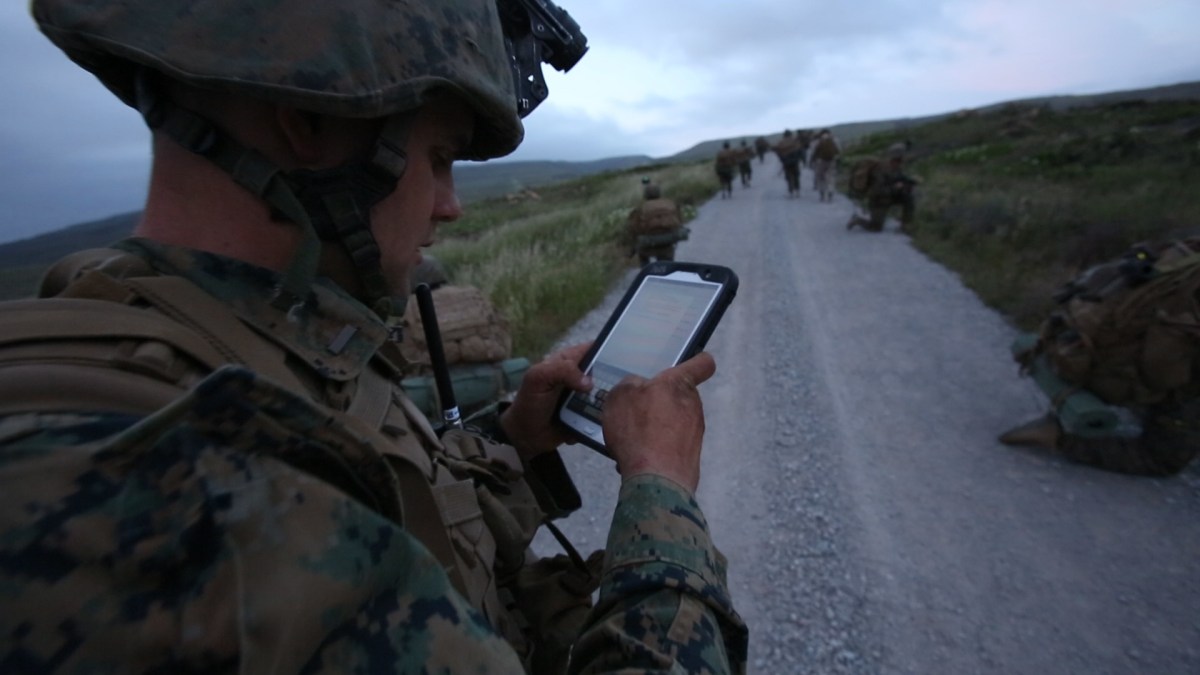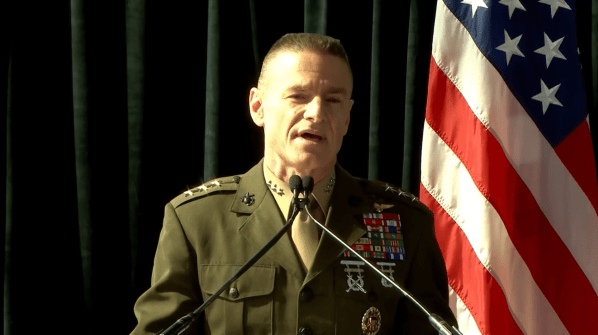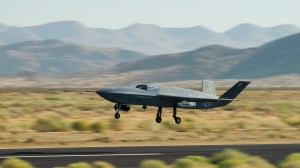Marines want to be the ‘eyes and ears’ of the US military in the information space

The Marine Corps hopes to be the “eyes and ears” of the joint force as it pertains to the warfighting function of information.
The Corps is about to release its newest doctrine — Marine Corps Doctrinal Publication-8, Information (MCDP-8) — which seeks to describe the purpose and mechanics of using information as a warfighting tool for the entire service.
With this new doctrine, the Corps sees its contributions to combatant commanders as providing forward presence, or what the Marines refer to as the “stand-in” force.
“It really comes down to being the eyes and ears of the joint force as the persistent forward presence and stand-in force,” Eric Schaner, senior information strategy and policy analyst within the office of the deputy commandant for information, said Thursday during a presentation at the Modern Day Marine conference in Washington.
“We have to fuse together our ideas about the nexus between intelligence and information, maneuver and fires, as an integrated holistic environments concept where we can persist as the stand-in force, really be that as well as an extension of the combined” force, particularly in the First Island Chain in the Pacific, he said.
MCDP-8 outlines three distinct information advantages the Corps seeks to gain: systems overmatch, meaning a technical advantage over adversary capabilities and tactics; prevailing narrative, which involves gaining the public opinion or perception of trust for credibility and believability; and force resiliency, which includes the ability to resist and prevail against adversary technical disruptions as well as misinformation, disinformation and propaganda.
Schaner used the First Island Chain in the Asia-Pacific as an example to articulate how Marines can be that persistent, forward presence to combat China within this information space, which is becoming increasingly important.
The Chinese Communist Party’s objective is to push the U.S. military out of the region by developing a systems overmatch and trying to undermine the United States’ partnerships with other nations in that part of the world.
“Here comes stand-in forces. It’s effectively a counter strategy,” Schaner said. “We become the force that can persist and survive in a contested zone, weakening systems overmatch and information advantage by winning the recon and counter-recon fight, all so that we can be present and persistent to reinforce our alliances and our partnerships. Thus, we achieve the prevailing narrative. What that means is we must be a resilient force inside of the First Island Chain, withstanding all forms of information disruptions to our systems and to our psyche.”
Part of the reason the Marine Corps, as well as the other services, have made organizational changes and adopted varying information approaches is in response to adversary actions.
“Information is central to our rivals’ way of competition and war. Therefore, it must be a focus of ours,” Schaner said. “All of our rivals seek to gain advantage over the United States by first and foremost blurring the peace-war divide. That’s an information concept when you talk about gray zone operations and dual-use military-civilian capability.”
Put more starkly by Deputy Commandant for Information Lt. Gen. Matthew Glavy a day prior: “In the competition phase we will win or lose our ability to own” the information space.
Schaner also noted that when the Corps was developing MCDP-8, it intentionally wanted to offer the document to the joint force as an overarching framework.
“I would argue any service, regardless of what their tactical implementation of information is or what it’s called, they can see themselves reflected in this overarching high level framework,” he said. “Our intent is to hopefully get this out there and make it a universal language.”






